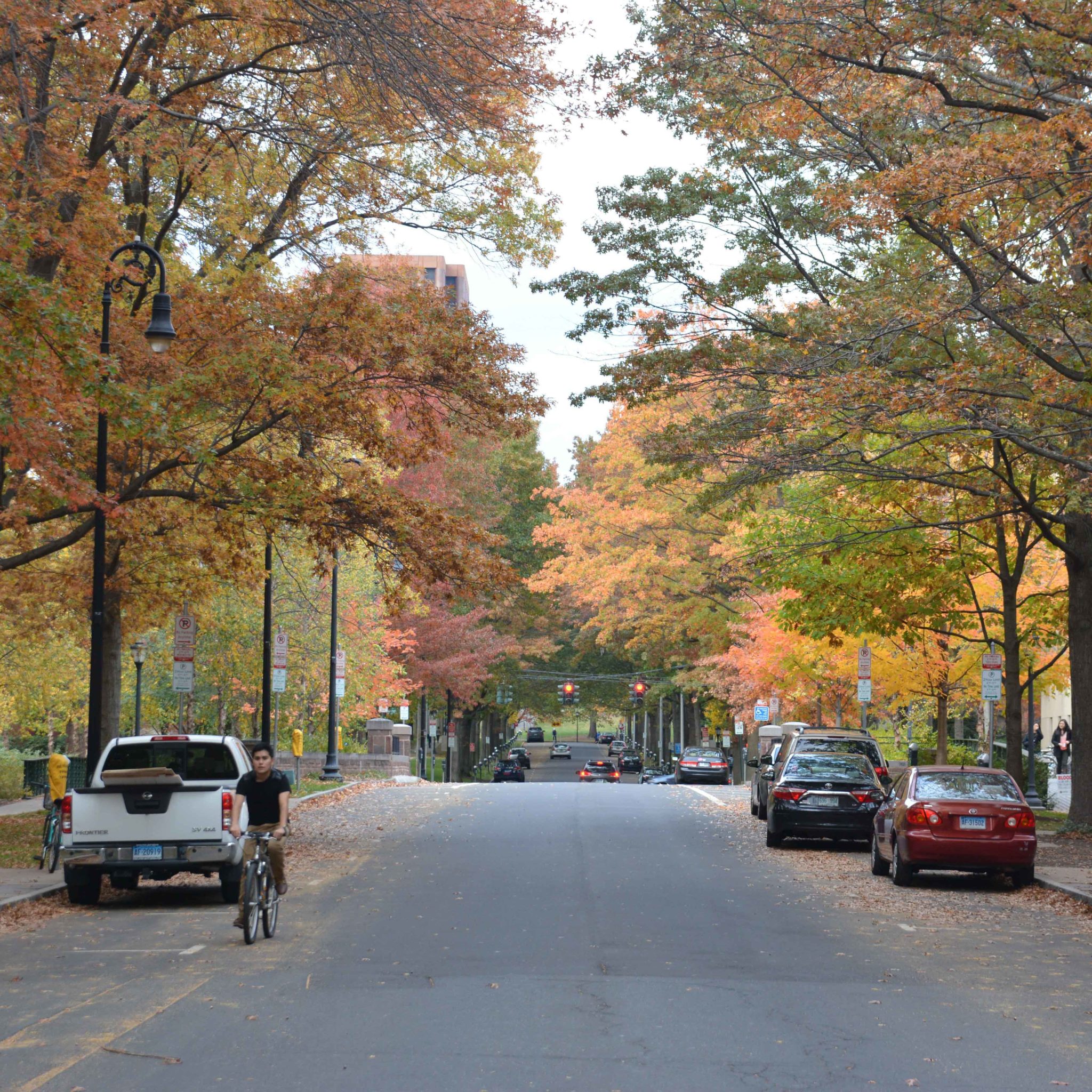
For Diego von Vacano, professor at Texas A&M University, spending a year at Yale as a visiting professor provides a “nice respite.” During his last semester teaching at Texas A&M before he came to Yale, students had started bringing guns to class — the result of a new state law that expands the areas on public university campuses where those with appropriate licenses can carry concealed handguns.
“It’s a good chance for me to meet people who are doing really interesting things in a different environment,” von Vacano said. “It’s almost like going abroad in a sense, especially now with the political situation in the country.”
Von Vacano belongs to a group of professors at Yale who have come to the University temporarily, usually for between six months and a year, to work with colleagues on research and to teach graduate and undergraduate students. Von Vacano, who specializes in Latin American political theory, was appointed a presidential visiting fellow as part of the provost’s $50-million diversity initiative announced in 2015. The fund provides financial support to hire approximately 10 visiting professors each year to contribute to “inclusive excellence.”
Von Vacano said he was impressed by Yale’s commitment to promoting diversity within both its faculty and student populations, adding that other schools should replicate the University’s approach. Having spent time at both Princeton and Harvard, he said he found Yale to be more interested in diversity issues as well as “cultural aspects” like the arts, something he attributed partly to Yale’s proximity to New York City.
Nicolas Lambert, a visiting professor in the Economics Department’s Cowles Foundation for Research in Economics, described Yale as more “collegial” than his home university, Stanford. He added that travelling to different campuses is beneficial because it can provide scholars with the opportunity to exchange new ideas and innovate.
“It’s always good when ideas travel,” Lambert said. “The Yale system of having these visiting professors coming for a year or six months is a great idea, and it’s quite unique because not that many places allow these kinds of [programs].”
Ying Fan GRD ’09 and Rüdiger Bachmann GRD ’07, who are also visiting professors at the Cowles Foundation, returned to Yale’s Economics Department 10 years after completing their doctorates at the University. Still, Bachmann said the basic atmosphere of the department has not changed. Additionally, as a visiting professor, he said he has fewer responsibilities than at his home university, Notre Dame, giving him more time to spend on research, which he described as “exhilarating.”
Fan said she appreciates how engaged her students are in the graduate class she teaches.
“You feel like you’re making a difference,” she said.
Five visiting faculty members interviewed by the News praised the “vibrant” intellectual environment at Yale.
Adriana Chira, a visiting fellow in the Macmillan Center’s program in Agrarian Studies, said her colleagues in the program have “voracious minds.” She added that the interdisciplinary nature of the program, which focuses on understanding rural life and society, allows her to look at her work on Atlantic World History with new eyes.
In turn, visiting scholars enrich conversations taking place on campus, Chira stressed.
“It’s a way to bring together people who have work in progress that have contributions and opened up new fields of knowledge,” she said. “You wouldn’t be able to have that without the visiting scholar programs.”
Adelaide Feibel | adelaide.feibel@yale.edu







